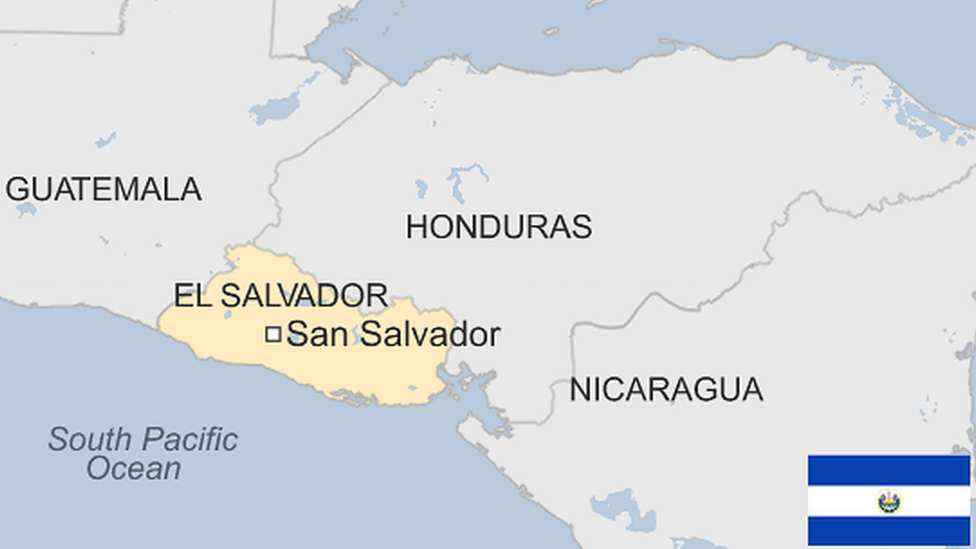Security forces guard El Salvador buses after murders
- Published
The government in El Salvador has provided military and police escorts for bus drivers, as Katy Watson reports
The government in El Salvador has provided military and police escorts for bus drivers forced to go on strike by powerful criminal gangs.
At least seven drivers who defied the ban have been killed in recent days, and the capital San Salvador has been paralysed for days with commuters forced to walk to work.
Criminal gangs have been pushing for truce negotiations with the government.
El Salvador has one of the highest crime rates in the Americas.
The stoppage is the latest crisis between the government and the gangs, which are demanding to be included in a commission examining ways of stemming urban violence - which they are largely responsible for.
President Salvador Sanchez Ceren has ruled this out.
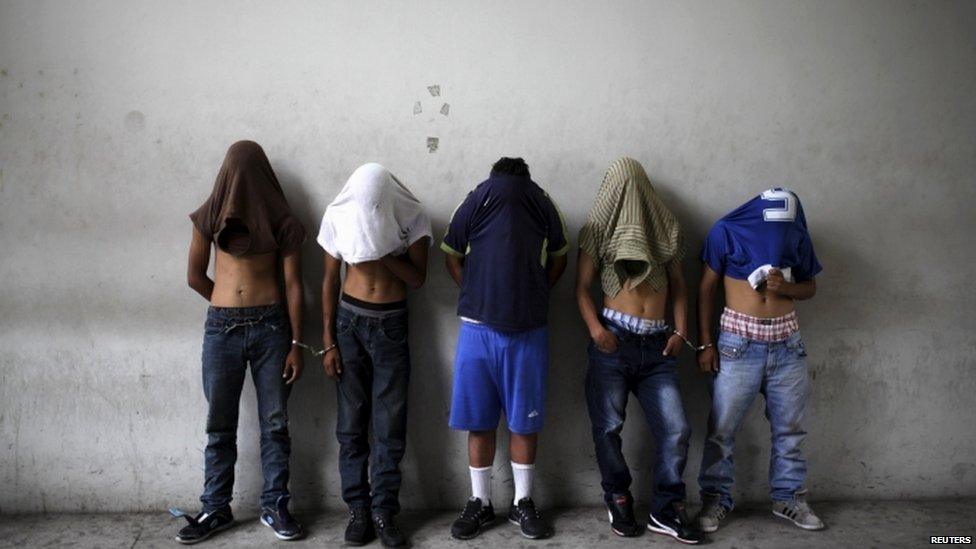
The government has captured a number of suspected gang members accused of murdering bus drivers
More than 100 bus routes have faced threats from gangs, local media say.
But Deputy Transport Minister Nelson Garcia told reporters: "Many companies have started working and the hope is that this will be normalised gradually."
Police and soldiers guarded bus stops in San Salvador and surrounding areas, while police patrols and military tanks patrolled the city.
In areas where bus services had not been restored, people were being moved by lorries.
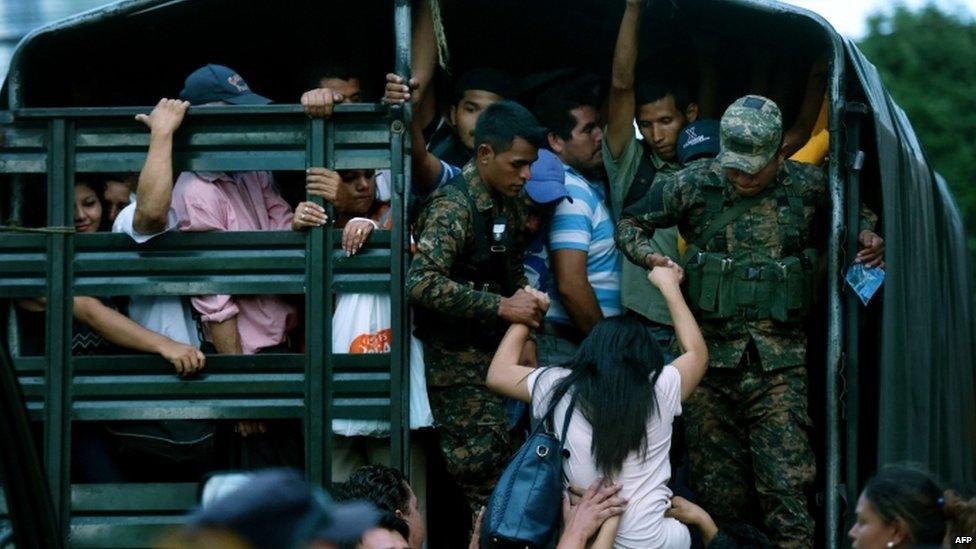
Many people used army trucks and other state-owned vehicles to get to work or school.
President Sanchez Ceren has blamed the latest violence on a gang called Barrio 18.
Since taking office last year, he has focused on tackling crime.
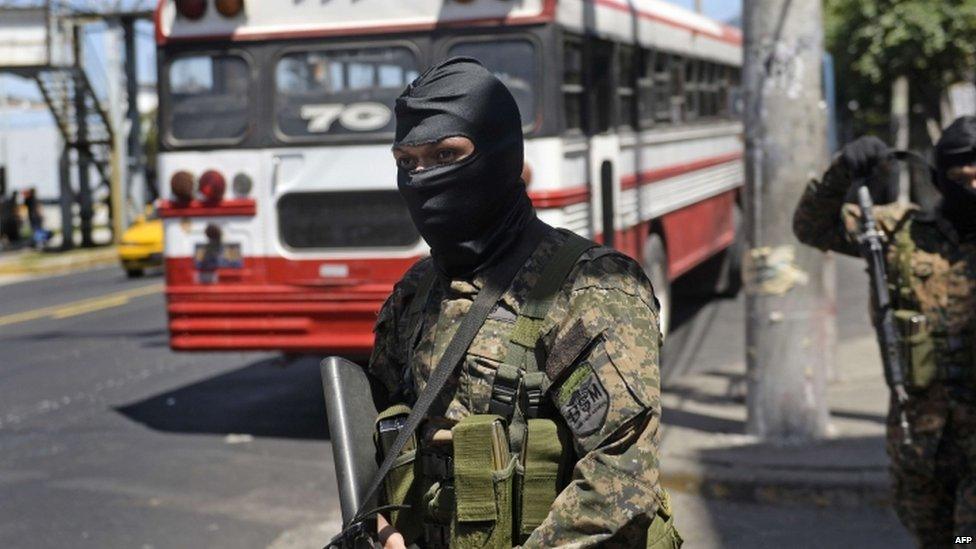
Few buses were circulating in San Salvador despite police guards at bus stops
However the country has faced a sharp increase in violence since 2014.
Barrio 18 and another gang, Mara Salvatrucha are estimated to have 70,000 members.
- Published29 May 2015
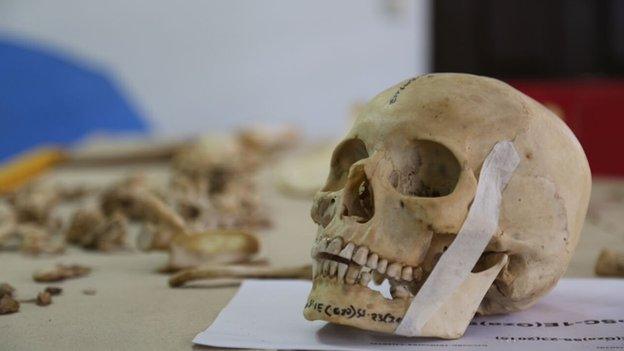
- Published25 March 2014
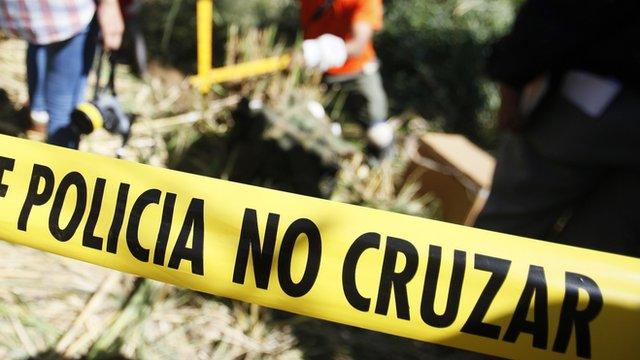
- Published9 July 2024
